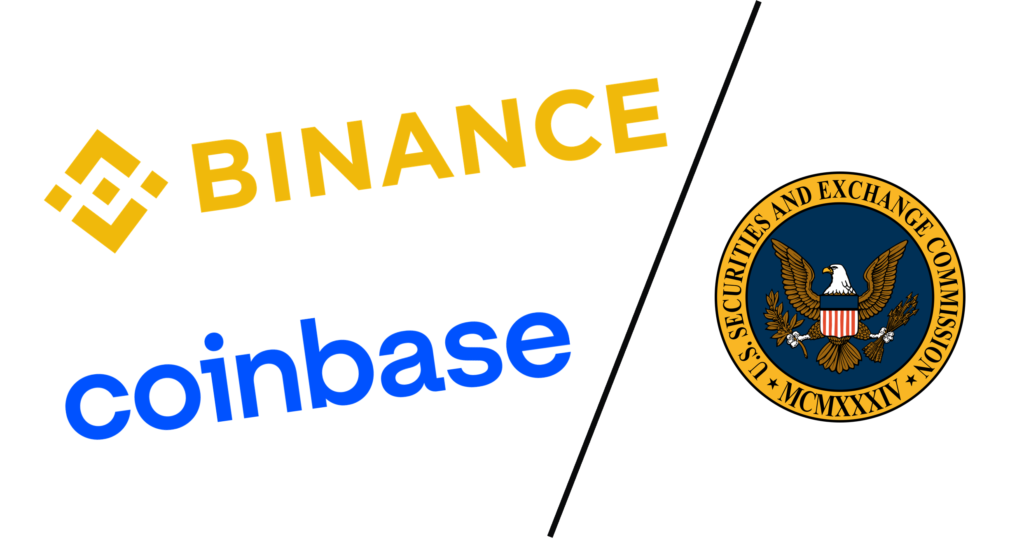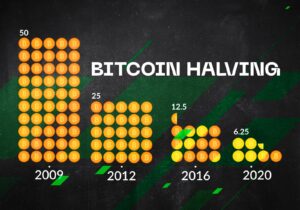- The US Court ordered the top crypto exchange to pay $2.7 billion and Changpeng Zhao to pay $150 million to the Commodity Futures Trading Commission(CFTC).
- On November 21, Changpeng Zhao agreed to step down from his role as part of a wider settlement with the US Department of Justice, the Treasury Department, and the CFTC.
- After the settlement, Binance agreed to take further steps to impose their KYC/AML measures.
The 2023 crypto market has tested the boundaries of the industry. Throughout the year, the industry has faced numerous highs and lows, reshaping how the world views cryptocurrency. Some of our high moments include organizations that have steadily adopted crypto payment gateway and South Africa pioneering Africa’s first balanced regulatory frameworks.
The adoption rate of decentralized applications has also grown significantly, with investors, organizations, and innovators steadily embracing blockchain-based ideas. Unfortunately, we have also witnessed one of our worst moments within the year as the industry’s top exchanges have fallen from their grace.
Binance, Kraken, and Coinbase have suffered from numerous crypto lawsuits due to the unclear crypto regulatory framework. Binance’s CEO Changpeng Zhao has shocked the entire industry after pleading guilty to several charges of money laundering.
In recent developments with the Binance case, the US court has finally reached a verdict as they approved a settlement of $2.7 billion against Binance, concluding the CFTC enforcement action.
The US SEC finalizes the Binance Case.
After the FTX crash, it became painfully clear that the global crypto regulatory framework required considerable changes. The entirety of how FTX mishandled user funds showcased the vast power centralized exchanges have in the crypto industry. This became a wake-up call to the entire industry and various regulatory bodies. Since then, numerous crypto lawsuits have merged, culling the sector of any suspicious activities.
For instance, the US SEC rained down multiple crypto lawsuits on exchanges to the point that the crypto ecosystem became unfavourable to the entire industry. It launched cases against Kraken, Coinbase, and Binance to identify suspicious activities surrounding their operations. Unfortunately, after several legal, the US SEC has managed to find plausible evidence defaming the reputation of the crypto industry’s top entities.
Also, Read Binance Faces Three-Month Ban in the Philippines.
In recent developments, the Binance case has placed entire ecosystems on edge. According to the US court, Changpeng Zhao, the CEO of Binance, had facilitated numerous suspicious transactions that hint at money laundering activities. This not only proved that the US SEC was right all along, but it hinted that the custodial exchanges may have more power than we initially thought.

The US SEC has doubled its efforts to close its crypto lawsuit targeting top crypto exchanges like Coinbase, Binance, and Kraken.[Photo/Medium]
At the end of the Binance case, the US Court ordered the top crypto exchange to pay $2.7 billion and Changpeng Zhao to pay $150 million to the Commodity Futures Trading Commission(CFTC).
According to the official statement, the CFTC announced that the US District Court for the Northern District of Illinois has officially approved their initial settlement and concluded the enforcement action the organization issued in November.
CFTC wrote, “The court finds Zhao and Binance violated the Commodity Exchange Act (CEA) and CFTC regulations, imposes a $150 million civil monetary penalty personally against Zhao, and requires Binance to disgorge $1.35 billion of ill-gotten transaction fees and pay a $1.35 billion penalty to the CFTC.”
Unfortunately, the official approval of the settlement draws the financial curtains on the Binance case. CFTC sued the exchange and its executive on March 27 for evading federal law and operating an illegal derivatives exchange.
What the end of the Binance Case means for the crypto ecosystem
This case has rocked the entire web3 community, as many attributed it to a legal battle between decentralization and centralized control. After the FTX crash, the US SEC doubled its efforts on its crypto lawsuits and even added 50 staff members dedicated to these cases. For a time, Binance stood its ground, stating that the man-hunt on crypto exchanges goes beyond trying to protect users from scams and hacks.
They attributed the cases to centralized organizations trying to take over a growing digital revolution after it demonstrated its ability to forge centralized control measures. How FTX showcased this may have been negative, but its application proved how decentralized applications can empower users.
Unfortunately, on November 21, Changpeng Zhao agreed to step down from his role as part of a wider settlement with the US Department of Justice, the Treasury Department, and the CFTC. On the same day, he pleaded guilty to several civil charges and one criminal charge relating to Anti-Money Laundering Laws.
Also, Read Crypto Landscape Rattled: Binance CEO CZs Shocking Plea Deal.
Binance case became one of the downfalls of the crypto industry. Unfortunately, as a core entity within the web3 industry, CZ admitting to the claims significantly tarnished the reputation of crypto exchanges. It proved that even the best within the crypto sphere could potentially be a masquerading crypto scam waiting to implode.
Despite this, the BInance Case became a groundbreaking realization of how vague crypto regulatory frameworks and poor blockchain security and compliance methods are hindrances to the progress of cryptocurrency. As part of the settlement, CZ and Binance agreed to take further steps to impose their KYC/AML measures. As Binance takes active steps to improve its security, it will inevitably ripple across the ecosystem, influencing others to take the same route.
As for CZ’s associates, the court ordered Samuel Lim, Binance’s former Chief Compliance officer, to pay a $1.5 million civil monetary penalty for aiding and abetting Binance’s violation and engaging in activities outside of the U.S. to evade its laws wilfully. The aftermath of the Binance case is sure to affect the security aspect of cryptocurrency, but it also hinted at how no exchange is safe from the clutches of the US SEC. To move forward, clearly defined crypto regulatory frameworks and combed methods are a must if we are ever to achieve global adoption.
- SEO Powered Content & PR Distribution. Get Amplified Today.
- PlatoData.Network Vertical Generative Ai. Empower Yourself. Access Here.
- PlatoAiStream. Web3 Intelligence. Knowledge Amplified. Access Here.
- PlatoESG. Carbon, CleanTech, Energy, Environment, Solar, Waste Management. Access Here.
- PlatoHealth. Biotech and Clinical Trials Intelligence. Access Here.
- Source: https://web3africa.news/2023/12/23/news/binance-case-us-court-cftc/
- :has
- :is
- :not
- 2023
- 27
- 35%
- 50
- 7
- a
- ability
- According
- Achieve
- across
- Act
- Action
- active
- activities
- added
- adopted
- Adoption
- affect
- africa
- After
- aftermath
- against
- agreed
- All
- along
- also
- an
- and
- announced
- anti-money laundering
- any
- Application
- applications
- approval
- approved
- ARE
- AS
- aspect
- associates
- At
- balanced
- Ban
- Battle
- BE
- became
- been
- BEST
- between
- Beyond
- Billion
- binance
- Binance CEO
- blockchain
- Blockchain security
- blockchain-based
- bodies
- boundaries
- but
- call
- CAN
- case
- cases
- centralized
- Centralized Exchanges
- ceo
- CFTC
- Changes
- Changpeng
- Changpeng Zhao
- charge
- charges
- chief
- civil
- claims
- clear
- clearly
- Close
- coinbase
- commodity
- commodity exchange
- community
- compliance
- concluded
- considerable
- control
- Core
- could
- Court
- Crash
- Criminal
- crypto
- Crypto ecosystem
- crypto exchange
- Crypto Exchanges
- Crypto Industry
- crypto lawsuit
- Crypto Lawsuits
- Crypto Market
- crypto payment
- Crypto Scam
- cryptocurrency
- custodial
- custodial exchanges
- CZ
- CZ’s
- day
- deal
- Decentralization
- decentralized
- Decentralized Applications
- dedicated
- defined
- demonstrated
- Department
- department of justice
- Derivatives
- derivatives exchange
- developments
- digital
- digital revolution
- district
- district court
- doubled
- down
- draws
- due
- ecosystem
- Ecosystems
- Edge
- efforts
- embracing
- empower
- end
- enforcement
- engaging
- Entire
- entirety
- entities
- entity
- evade
- Even
- EVER
- evidence
- exchange
- Exchanges
- executive
- faced
- faces
- facilitated
- Fallen
- Fees
- Finally
- financial
- Find
- finds
- First
- For
- forge
- Former
- Forward
- Framework
- frameworks
- from
- FTX
- ftx crash
- funds
- further
- Futures
- Futures Trading
- gateway
- Global
- Global Crypto
- Goes
- grace
- Ground
- groundbreaking
- Growing
- grown
- guilty
- hacks
- had
- Have
- he
- High
- Highs
- his
- How
- HTTPS
- ideas
- identify
- if
- Illegal
- illinois
- impose
- improve
- in
- include
- industry
- industry’s
- inevitably
- influencing
- initial
- initially
- innovators
- instance
- Investors
- Issued
- IT
- ITS
- Justice
- Kraken
- KYC/AML
- landmark
- landscape
- launched
- Laundering
- Law
- Laws
- lawsuit
- Lawsuits
- Legal
- like
- Lows
- managed
- many
- March
- Market
- max-width
- May..
- means
- measures
- Members
- methods
- million
- Moments
- Monetary
- money
- Money Laundering
- more
- move
- move forward
- multiple
- must
- negative
- no
- November
- numerous
- of
- Officer
- official
- Officially
- on
- ONE
- only
- operating
- Operations
- orders
- organization
- organizations
- Others
- our
- outside
- over
- part
- Pay
- payment
- Personally
- Philippines
- Pioneering
- plato
- Plato Data Intelligence
- PlatoData
- plausible
- plea
- plea deal
- Point
- poor
- potentially
- power
- Progress
- protect
- proved
- Rate
- reached
- realization
- recent
- regulations
- regulatory
- reputation
- required
- requires
- reshaping
- Revolution
- right
- Ripple
- rocked
- Role
- Route
- s
- safe
- same
- Scam
- scams
- SEC
- sector
- security
- settlement
- several
- shocked
- showcased
- significantly
- since
- some
- South
- South Africa
- Staff
- Statement
- stating
- steadily
- Step
- Steps
- sued
- suffered
- sure
- Surrounding
- suspicious
- Take
- takes
- targeting
- tested
- than
- that
- The
- The Philippines
- the world
- their
- then
- These
- they
- this
- thought
- throughout
- time
- to
- top
- Trading
- transaction
- Transaction Fees
- Transactions
- treasury
- Treasury Department
- true
- trying
- u.s.
- unfortunately
- us
- US Department of Justice
- US Sec
- User
- user funds
- users
- various
- Vast
- Verdict
- views
- violated
- VIOLATION
- Waiting
- was
- we
- Web3
- Web3 community
- Web3 industry
- wider
- will
- with
- within
- witnessed
- world
- Worst
- wrote
- year
- zephyrnet
- Zhao













